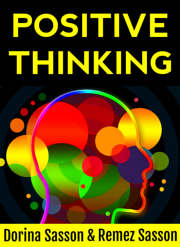
Seasonal traditions weave joy and well-being into our lives. Many of us gather with loved ones, partake in holiday rituals, or give meaningful gifts. These practices help foster gratitude.
They root us in the present moment, create lasting bonds, and boost mental health by spreading warmth and belonging. But how exactly do these traditions enhance our personal well-being?
Explore practical ideas for gratitude this season as we uncover the role of cultural practices in nurturing happiness.
Understanding the Psychological Benefits of Gratitude
Browse our online courses on meditation, positive thinking, overcoming procrastination, and freedom from distractions.
Some kindness here, some appreciation there, brings an abundance of perks to the recipient’s emotional and mental well-being. Recognizing what we have leads to greater happiness and satisfaction.
Engaging with gratitude boosts positive emotions, decreases depression symptoms, and even enhances resilience against stress. Studies by Dr. Robert Emmons show that gratitude increases life satisfaction while reducing negative feelings like envy or resentment.
When practicing gratitude consistently, you unlock deeper connections in personal relationships. Nurturing a happier mind creates ripple effects throughout one’s life.
How Thoughtful Gift-Giving Reinforces Personal Bonds
Consider a gesture that strengthens ties, evokes warmth, and deepens connections – thoughtful gift-giving holds this power. Selecting meaningful gifts demonstrates understanding and care for the recipient’s needs or desires.
Thoughtful presents create lasting memories by emphasizing relationships over materialism. In places like Canada, the tradition of exchanging chocolate Christmas gifts exemplifies how such gestures communicate appreciation during festive times. Offering carefully chosen items from thoughtfully curated collections highlights gratitude through quality and intention.
By embedding sincerity in gifting, You cultivate stronger personal bonds that echo beyond seasonal celebrations.
Holiday Gatherings and Their Impact on Mental Health
There’s something truly special in getting together with loved ones over a shared meal or festive occasion. These gatherings build deep connections and mutual support, essential components for robust mental well-being.
Such social interactions can reduce feelings of loneliness and isolation, providing emotional comfort. They remind us we are part of a larger community that values us. According to research by Dr. Julianne Holt-Lunstad and team, social relationships are essential for both mental resilience and overall longevity.
The Role of Seasonal Rituals in Creating a Sense of Belonging
Imagine rituals that knit communities together and provide people with identity anchors. Seasonal traditions, whether lighting candles or decorating homes, offer a comforting rhythm to life.
They act as bridges between past generations and the present, reinforcing shared values and collective memory. By participating in these rituals, people affirm their place within families and societies.
These familiar patterns deliver stability amidst change, nurturing an inclusive atmosphere where everyone feels seen and cherished.
Ideas for Embracing Seasonal Moments to Reduce Stress
Want some inspiration? This year, there are a few things you could do to find tranquility during seasonal traditions like Thanksgiving or Christmas. Balancing celebration with personal wellness can ease holiday stress.
- Create a gratitude journal highlighting daily positives.
- Simplify your schedule by prioritizing meaningful events.
- Designate quiet time for meditation or reflection.
- Set boundaries with family and work commitments.
Engaging in these mindful practices enhances emotional stability. By integrating self-care into festive routines, you’ll experience more joy and peace throughout the season.
Enhancing Community Well-Being with Local Events
Seasonal traditions don’t just benefit families and their friends. They assist in community well-being as well. Festivals and fairs, for instance, cultivate gratitude by encouraging people to express appreciation for local culture.
Winter markets create a communal space where people share moments of thanks amidst joy and camaraderie. Parades invite everyone to celebrate unity through vibrant displays of tradition while appreciating the contributions of others.
These events strengthen social ties, making communities more cohesive and resilient.
Cultural Expressions of Appreciation and Their Effects on Happiness
Around the globe, gratitude takes many forms – each rich with meaning. In Japan, gifting special tokens called “omiyage” symbolizes respect and appreciation during visits.
Native American tribes often hold potlatches, ceremonial gatherings where giving defines community stature. Such acts aren’t mere customs; they inspire joy and deepen social bonds.
Engaging in these cultural expressions boosts happiness by highlighting the value of human connections. They teach that appreciating others enhances collective well-being while nurturing individual contentment.
Exploring How Festive Celebrations Ground Us in Gratitude
Picture festive lights twinkling as families gather, anchoring moments of togetherness and reflection. These celebrations, from Diwali’s luminescent rituals to Thanksgiving feasts, inspire us to count blessings.
By creating spaces for joy and appreciation, such events foster a sense of abundance. They remind participants of life’s bounties – food on the table and warm homes filled with love.
Embracing these occasions strengthens our gratitude roots, grounding us within our shared human experiences while nurturing enduring thankfulness.
Gratitude transforms everyday moments into rich, meaningful experiences. Seasonal traditions remind us of our shared humanity and deepen our bonds with others. In nurturing appreciation, we unlock lasting joy and well-being, proving that gratitude is indeed the heart of happiness.

